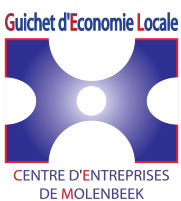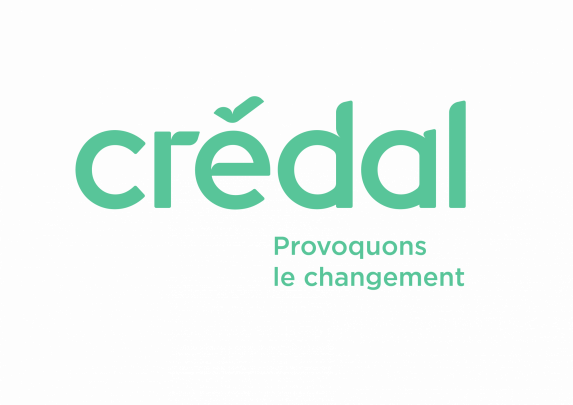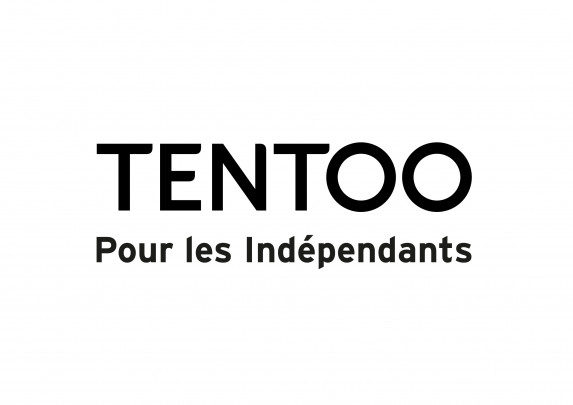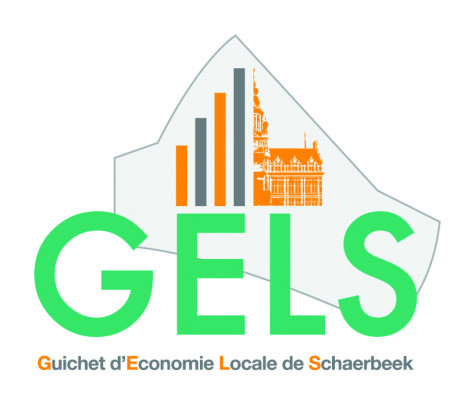Brussels, the capital of Europe, is also a multicultural city: no fewer than 180 nationalities are represented here. In 2021, there will be 279,000 residents from EU countries and 153,000 from non-EU countries. A real melting pot of knowledge and know-how! However, while access to the labour and entrepreneurial markets is easy for Europeans, it is not necessarily the same for non-Europeans. Here's a look at the solutions and organisations that are there to help those who want it.
To start your own business
If you have an activity that generates income in Belgium, this income must be declared to the State. There are several ways in which you can your own business, with different statutes and therefore different formalities.
SETTING UP AS SELF-EMPLOYED
To establish themselves as self-employed, Ukrainian citizens typically need to obtain a professional card, except in certain cases.
Those residing in the Brussels-Capital Region or in Wallonia and starting up as an individual, or those creating a company with its head office in these two regions, must prove their professional skills if applicable. Practical experience or a diploma acquired in Ukraine can be used as proof, according to the same rules as any non-EU national.
Contact an enterprise counter before taking any other steps, to check whether your diplomas and experience are valid and find out what documents you will need to provide.
Certain diplomas are automatically approved and accessible in the Diplo database. If the ongoing conflict prevents the submission of certain evidentiary documents, some flexibility will be granted. A lost diploma can be substituted with a certificate from the issuing organisation.
For other diplomas, an equivalent document may be requested. Please note that this request for equivalence is not free and can take a long time for a result that is (often) negative.
In terms of experience, double proof of practice is required. For example, an extract from the commercial register and a social document attesting to self-employment (from the equivalent of a social insurance fund).
In the absence of a recognised diploma or valuable experience, it will be possible to take an examination at the Central Jury. These theoretical exams are held in French, Dutch or German. Training courses are available to prepare for these exams (here or here).
CARRYING OUT ACTIVITY VIA A SHARED ENTERPRISE OR A COOPERATIVE OF ACTIVITIES
Another option is to work through a company that will act as an intermediary between the project owner and their clients. The project owner will thus become an employee of this intermediary who will transform the income of their clients into successive fixed-term contracts. This system avoids the pitfalls of the professional card and makes it possible to start a business much faster and more easily.
Some activities, which are either "protected" (such as doctors, architects and accountants) or that require a long-term commitment (such as signing a commercial lease) are not possible in a shared enterprise. There are multiple intermediaries, and Smart offers the most extensive range of activities among them. The others are Tentoo and Amplo.
A business cooperative allows you to test your activity for 18 months while maintaining your status as a job seeker, and therefore without the need for a professional card and access to management. Coaching is offered to set up the business. In Brussels, this possibility is offered by JobYourself.
CREATING YOUR ACTIVITY AS A NON-PROFIT ASSOCIATION (NPO)
When the company's goal is not personal enrichment but a selfless goal of improving society, it can operate as an ASBL. There are many ASBLs in the social, cultural and leisure... sectors.
Founding an ASBL requires a minimum of two individuals. These two people agree on the statutes, which are published in the Belgian Official Gazette. It is not possible to be an employee as a director of an ASBL, but this is allowed for specific tasks other than the day-to-day management of the association (e.g. giving courses or running the art gallery). In this case, as you do not have self-employed status, having a professional card or access to the management and profession is not necessary.
WORKING IN BELGIUM WITH YOUR FOREIGN COMPANY
1. BY CREATING A SUBSIDIARY
The subsidiary is a company under national law (a company that will adopt a legal form under Belgian law), founded and controlled by one or more Belgian or foreign companies. The subsidiary has its own shares and its own board of directors.
The subsidiary has a separate legal personality from the parent company, unlike a branch office.
The administrator must have a professional card (and access to management if the head office is in Brussels or Wallonia).
2. BY CREATING A BRANCH OFFICE
The branch office is an extension of the foreign company in Belgium. It is created when the latter decides to regularly carry out acts falling within the framework of its commercial activity on our territory.
The branch has no legal personality. It therefore has no shares, no general assembly, no management body, etc., other than those of the foreign company of which it is part. However, the branch has separate management with some autonomy.
A legal representative of the foreign company must be appointed to its management. The deed of appointment must define the extent to which they are authorised to bind the foreign company in the context of the branch's activities. When a branch office enters into a contract, it is in fact the parent company that is committed.
3. BY CREATING A SIMPLE ESTABLISHMENT UNIT
Unlike with the branch, there is no separate management. In Belgium, no one has the power to bind this company, so there is no legal representative. Management is retained in its entirety within the foreign company.
As with a Belgian company, the Establishment Unit is defined as a place of business, geographically identifiable by an address, where or from which at least one activity of the company is carried out (store, office, warehouse).
The company will therefore have to meet the same conditions as all Belgian companies in terms of registration with the Crossroads Bank for Enterprises, entrepreneurial capacities and other authorisations.
Working (without settling) in Belgium
If a foreign company carries out activities in Belgium without being established there (e.g. consultancy activities), it will have to submit an application for authorisation through the business counter. A professional card is therefore necessary.
WHAT ABOUT TAXATION?
SOCIAL CONTRIBUTIONS
Part of your income is deducted to ensure your social protection in terms of health coverage, family allowances, pension, etc.
- For an employee, the contributions generally amount to more than 30% of the salary, but they are deducted at source and paid directly by the employer to the State.
- For a self-employed person, social security contributions are 20.5% of their income. In this case, these contributions are not deducted at source but they will have to pay them themselves each quarter. Please note that especially in the first year of activity, there is a minimum to pay, even if you have no customers!
PERSONAL INCOME TAX
Whether you have income as a self-employed person (individual or company director) or as an employee, it will be taxed with IPP (Personal Income Tax). This tax works by brackets (net income before tax is considered). For a self-employed person, this means that we take the turnover, from which we deduct the deductible expenses).
Every taxpayer is entitled to a tax-free amount: this is a basic amount on which you do not pay tax. It is to be counted in the first bracket and may increase depending on your personal situation (for example, if you have dependent children).
With the same net income, the tax is therefore the same for an employee and for a self-employed person. The big difference is that, in the case of the employee, this amount will again be deducted at the source and paid directly by the employer to the State. However, for the self-employed person, all their remuneration will be paid into their bank account and they will have to take the money out.
CORPORATION TAX
Your executive remuneration will therefore be taxed as personal income tax. However, the rest of the company's income will be taxed as ISOC (corporation tax).
Support in becoming self-employed in Brussels
A) Reception
Some organisations have set up reception, support and mentoring programmes for newcomers.
- The non-profit organisation VIA, a reception office for newcomers, which has two locations (Schaerbeek and Molenbeek), offers several types of support, such as individual support, socio-professional orientation, citizenship training and French courses, to newcomers. It has also set up the PEPA support programme, which aims to facilitate the employment self-creation process for newcomers, by providing group information sessions and individual support.
- The ASBL CONVIVIAL aims to promote the integration of refugees and newcomers into Belgium with an approach involving listening and reciprocal commitment.
- Duo for a job is a non-profit organisation that brings together young job seekers from immigrant backgrounds with experienced volunteers over 50 years old from the same professional sector, so that the latter can support them in their job search or entrepreneurial project.
- Team4job offers a six-month mentoring programme that puts job-seekers (mentees) in touch with professionally active people (mentors) to boost their job search or project development. Together, they form a pair and meet at least twice a month at the mentor's place of work.
- Ciré's general reception service is a free service that informs and guides people regarding Ciré's services and actions, as well as regarding residence and asylum procedures, the rights of foreigners and appropriate social and legal support. The service also aims to contribute to the integration of foreigners into the Belgian labour market, in respect of their rights and their socio-professional project. To do this, it informs and supports people in their efforts to obtain the equivalence of diplomas and in the validation of more informal knowledge.
- BON (Inburgering Brussel) organises integration courses in 20 different languages, and also gives advice and support and organises a lot of activities.
Support to set up a business
Several structures can provide free support to candidate entrepreneurs to set up their business project:
- the (Local Economy Office) provides free support to any person wanting to create or develop their own activity in Brussels by helping them with their entrepreneurial process.
- Iles
- Microstart
- Credal
- Job Yourself
For those wanting to create an ASBL, the following structures can help:
And afterwards ?
Before you can start trading, you need to complete a number of other formalities. These include:
- Register your business with the Banque-Carrefour des Entreprises and obtain a company number from a business counter of your choice:
- Joining a social insurance fund for the self-employed;
- Register your business for VAT if applicable to your situation.
Want to find out more about these formalities?
Check out the other guides produced by hub.info:
- The first covers the main obligations involved in starting up as a self-employed person ;
- The second covers the first steps involved in setting up a company in the Brussels-Capital Region.
Do you have any questions about social security for foreign nationals? The coming2Belgium website provides detailed information.
If you still have questions about the professional card, you can contact Brussels Economy and Employment at any time.
For questions relating to access to the territory and expatriate status, the commissioner.brussels site gives you all the information you need. And don't forget the website of the Immigration Office.
hub.info is also available to guide you through all the stages of your company's life, by telephone on 1819 or by e-mail.
Who can help me ?





